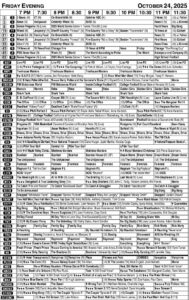Woman debates newest COVID shot
To Your Good Health
DEAR DR. ROACH: I am an 80-year-old healthy woman (who is 5 feet, 3 inches tall and weighs 118 pounds). I have no underlying health issues except slightly high blood pressure. I have had all the COVID vaccines that have been offered. I did have a slight case of COVID in 2022.
I received the 2024-25 COVID vaccine on Aug. 1. Then they came up with an updated version for 2025-26. I would need to wait two months to get another vaccination. Is it worth getting the updated version to protect me this coming winter, or would this be “overkill”?
— C.R.
ANSWER: The 2024-25 vaccine has activity against the variants of the COVID vaccine that are circulating now, so you did get some benefit from the vaccine. The 2025-26 vaccines are intended to provide better protection against the strains that are expected to circulate in the near future.
At age 80, you are at an increased risk from COVID-19, but the fact that you have had all the vaccines, including the most recent one in August, does mean that you have protection from severe COVID. If you had an immune system disease, chronic heart / lung disease, or other conditions, I would definitely advise that you get the new vaccine.
The downside of getting the new vaccine as soon as possible is a sore arm and maybe foregoing additional protection in early 2026. You could get it now or in a few months if the amount of the virus is high in your community.
DEAR DR. ROACH: What do you think of the Sinclair Method for dealing with an alcoholic?
— M.D.
ANSWER: Naltrexone is approved for the treatment of alcohol use disorder under the Food and Drug Adminstration.
The Sinclair Method uses naltrexone, a medication that is often used for the treatment of opioid use disorder, to reduce the enjoyment people get with consuming alcohol, which makes for less cravings and more control over drinking. A major advantage of this method, which is used by many programs, is that it does not require total abstinence.
This can be beneficial for some people who feel awkward in social situations where drinking is considered normal. The treatment only works as long as people are using naltrexone. In the Sinclair Method, naltrexone is not necessarily given every day, only when a person is going into a situation where they will be drinking. This can be especially helpful in a person who intends to have one drink but ends up drinking more than they want to, especially when they “binge.”
In my opinion, medication therapy is underused for people with moderate or severe alcohol use disorder.

